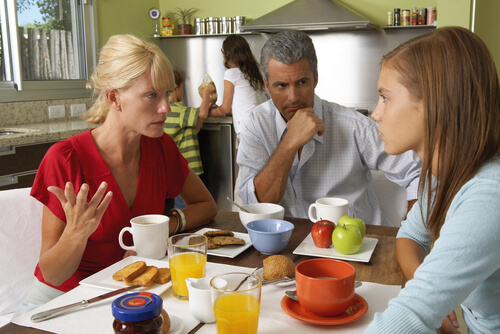
How Much to Share With Your Children About Your Divorce
Talking to children about your divorce may seem so painful that you begin to question whether it’s even necessary to have such a difficult conversation. Yet you know the time will come when something must be said. The question is what to say, and how to say it. Here is what to keep in mind when talking to children about your divorce.
- Write out or rehearse what you are going to tell them ahead of time.
- Be honest. Don’t lie or pretend that everything is normal.
- Keep it simple. If the reason for divorce is that you can’t get along, just say that.
- Reinforce your love. Tell your children that your love for them hasn’t changed, and you will figure things out together.
What Not to Say
Young children don’t understand the complexities of divorce, but they still try to figure everything out. That’s why they often conclude that they are to blame for the separation. They may be anxious and fearful, and afraid to discuss these fears with you or anyone else. No matter what the reason for the divorce, young children wish it wasn’t happening. They also can’t conceptualize why arguments would lead to one parent moving out (that’s not the result when they fight with a sibling!). Divorce is very confusing for children. That’s why it’s important to:
- Avoid blame. Your spouse is still your child’s other parent; keep it clean.
- Avoid waiting. Springing the news on your kids at the last minute is a bad move.
- Avoid dumping. You should have more than one, short conversation with your children about the divorce
- Avoid information overload. Don’t overwhelm them with too many details or grownup problems.
How to Help Children Cope With Divorce
Now that you have broken the news, children need a way to deal with their feelings of grief, loss and confusion. Here is how you can help:
- Listen. Even if your child is venting his anger, frustration and fears, do not shut him down. Let him know that no matter what he says or feels, you still love him.
- Encourage. Some children may need more encouragement to openly talk about their feelings.
- Acknowledge. She has taken the big step of admitting her true feelings; acknowledge that they are real for her and that you understand.
- Reassure. Children do often feel responsible for the divorce, and you can help by explaining that they are not
- Love. Whether it’s physical closeness or verbal understanding, show your love.
- Routine. Maintain the daily structure and routines; communicate what to expect and enforce limits on behaviour
- Recover. Divorce is traumatic for you as well as the kids, so make sure you are taking care of yourself physically, mentally and emotionally and getting support.
Talking to children about your divorce is difficult and emotional, but keeping these things in mind can set the tone for trust and positive communication going forward.
